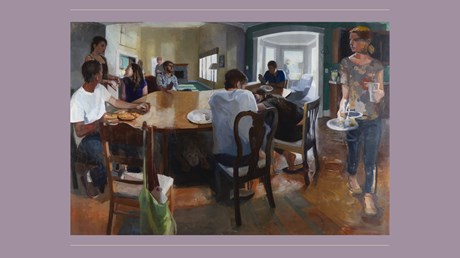The hope and anxiety inherent in Jesus' last passover feast

Can you remember what you ate yesterday? Maybe you had a bagel for breakfast or a burrito for lunch; whatever it was, the food most likely served as a transition to the next activity in your day. While most meals are uneventful obligations to fill our stomachs, some slow us down and feed our souls. The memory of a meal on November 20, 1993, still feeds my soul. It was a chilly, drizzly evening—typical for that time of year in Vancouver. At the end of a carefully choreographed day to optimize the conditions for my success, I asked Toni to marry me. After she said yes, we celebrated with a delectable salmon dish. The meal gave us the opportunity to remember why and how we fell in love. It was a moment of resolve, a time for making promises.
In the intimacy of an evening with beloved friends, Jesus hosted a meal with everlasting significance. Mark’s account of the Lord’s Supper sets the scene “on the first day of the Festival of Unleavened Bread, when it was customary to sacrifice the Passover lamb” (Mark 14:12). The Passover meal commemorated God’s great deliverance of Israel from its slavery in Egypt. As God’s people practiced remembrance, it eventually became anticipation, whetting their appetite for deliverance from Roman oppression. The act of sacrificing the Passover lamb was freshly performed each year at the temple, and soon its meaning would be freshly presented in the Lord’s Supper.
The story, however, moves from anticipation to anxiety. Jesus interrupted the dinner conversation by saying, “Truly I tell you, one of you will betray me—one who is eating with me” (v. 18). Whatever pleasantries shared at the table would have screeched to a halt. This stark ...
from Christianity Today Magazine
Umn ministry


.gif)

.gif)
.gif)
